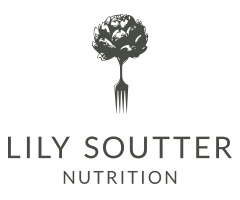Shots, powders, drinks, pills, collagen is everywhere! In fact, it’s been estimated that the collagen industry is set to be worth approximately £5 billion by 2020, but is there really any science to support the hype?
Collagen is the structural component of skin, and as we age we lose 1% each year in our mid-20s and 30% during the first 5 years of menopause. Collagen supplements have become a huge hit within the anti-ageing market with products claiming they will ‘improve skin elasticity and reduce visible wrinkles’.
There are several types of collagen supplements on the market, with hydrolyzed collagen (a mix of amino acids and dipeptides) being superior for skin health (1). Animal studies using radioactively-labelled hydrolyzed collagen have shown that certain collagen dipeptides can reach the skin rapidly after ingestion, and are retained in the tissue for up to two weeks (2). It is thought that these collagen dipeptides trick the body into thinking that there is collagen breakdown and repair is urgently needed. This then stimulates fibroblasts to produce more collagen, elastin and hyaluronic acid which gives our skin its youthful qualities. However, sceptics claim that these dipeptides may accumulate anywhere within the body and do not necessarily exert effects on the skin.
Despite this, a recent systematic review of human trials has concluded that oral collagen supplements can increase skin elasticity, hydration and collagen density (3). A further 2021 meta-analysis of randomised controlled trials concluded that ingestion of hydrolyzed collagen for 3 months is effective at reducing skin ageing, as it reduces wrinkles and improves skin elasticity and hydration (4).
⠀⠀⠀⠀⠀⠀⠀⠀⠀
Verdict – there is some exciting research to suggest collagen supplements may have impacts on skin ageing, however it is dependent on the type of supplement with hydrolyzed collagen being a top choice. However, further studies are needed to evaluate the long-term use of hydrolyzed collagen.

What else can we do to support our skin?
Vitamin C is a critical nutrient required for collagen production. Vitamin C is an antioxidant with high concentrations being found within the skin. This nutrient may help to protect against environmental factors which can speed up the ageing process such as sun damage.
Whilst there is no clear evidence or consensus of the optimal dose of vitamin C for slowing down the signs of ageing, regular consumption of vitamin C rich foods such as oranges, strawberries, broccoli, bell peppers, kiwi and even kale are all essential to long-term health and should not be forgotten within the diet.
1. https://www.sciencedirect.com/science/article/abs/pii/S0049017200568255
2. https://pubmed.ncbi.nlm.nih.gov/22382331/
3. https://jddonline.com/articles/dermatology/S1545961619P0009X/7
4. https://onlinelibrary.wiley.com/doi/abs/10.1111/ijd.15518
Lily is a London Nutritionist who graduated from Newcastle University with a BSc (Hons) degree in Food and Human Nutrition (AfN accredited) where she was awarded the Sage Faculty for Excellence Scholarship on an annual basis. She then went on to complete a 2-year post-graduate Diploma in Nutritional Therapy and is currently working towards her MSc in Nutritional Medicine (AfN accredited) at the University of Surrey. Lily’s extensive knowledge of the science of food and health, enables her to regularly write for The Times, The Telegraph, The Daily Mail, The Independent, Women’s Health and Cosmopolitan.
Her frequent TV appearances include ITV’s This Morning with Holly Willoughby and Phillip Schofield, and ITV’s primetime series Save Money: Lose Weight with Dr Ranj Singh. Lily’s passion is to simplify the science around nutrition, to provide health hacks and smarter eating strategies to empower people to enjoy a healthy and successful lifestyle. Her specialities lie in workplace wellness, implementing nutrition-focused wellbeing programmes within corporate organisations across the UK.
Lily also sees individual clients from her clinic in Chelsea and a private medical practice based in Notting Hill.



